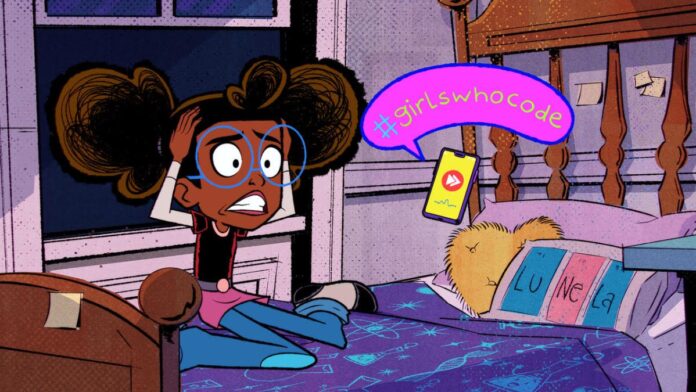Pioneering Black NASA astronaut Mae Jemison will star in a new Disney+ episode of “Marvel’s Moon Girl and Devil Dinosaur,” Space.com learned exclusively.
Mae Jemison, the first African American woman in space, will voice an app in an episode of the animated Disney+ show “Marvel’s Moon Girl and Devil Dinosaur” that premieres Saturday (March 18) at 10 a.m. EDT (and also at 10 a.m. PDT).
The timing of the episode makes a lot of sense, for March is Women’s History Month. You can catch an exclusive featurette of the episode above.
“Lunella creates a device that allows her to fast forward through mundane chores and tasks, but she struggles to handle the unexpected side effects,” reads an episode description. The app, named Skipster, is voiced by Jemison and aims to help Lunella “fast forward” through “any boring tasks” like waiting in line or folding laundry.
Related: International Women’s Day: Female astronauts keep making strides off Earth
Mae Jemison was accepted into NASA’s astronaut program in 1987, just nine years after the first African Americans were selected as astronauts. Her previous careers included work with the Peace Corps and serving as a general practitioner of medicine. Jemison flew on STS-47, a space shuttle Spacelab science mission, for eight days in 1992.
After leaving NASA in 1993, Jemison established a company (called the Jemison Group) that aimed to boost student engagement in science and technology. She has appeared on numerous television shows before this one, including an episode of the always diversity-friendly “Star Trek” series “The Next Generation” in 1993.
Related: What ‘Star Trek’ has taught us about diversity
“Marvel’s Moon Girl and Devil Dinosaur” stars Black actress Diamond White as Lunella. White has said she appreciates the showrunners’ and scriptwriters’ emphasis on diversity. Last month, White told Forbes (opens in new tab) how excited she was for an episode during which Lunella gets her first hair perm.
“I have a list of all these things I grew up having or going through as a black girl [and asked] ‘Can we incorporate some of these things?’ And they were like, ‘Yeah!'” White said in the interview.
(opens in new tab)
NASA counts 73 women astronauts who have flown as of March 2023, but the number increases when considering suborbital journeys. Historically, a part of the gap in gender representation came because NASA and other agencies drew from the military, which favored males almost exclusively in spaceflight’s early decades.
Black spaceflight milestones have accelerated in the last few years, including the first Black woman pilot (Sian Proctor), aboard the billionaire-funded Inspiration4 mission in 2021, and the first Black long-duration mission woman astronaut (Jessica Watkins) in 2022, who spent 170 days in space, mostly aboard the International Space Station.
Elizabeth Howell is the co-author of “Why Am I Taller (opens in new tab)?” (ECW Press, 2022; with Canadian astronaut Dave Williams), a book about space medicine. Follow her on Twitter @howellspace (opens in new tab). Follow us on Twitter @Spacedotcom (opens in new tab) or Facebook (opens in new tab).

